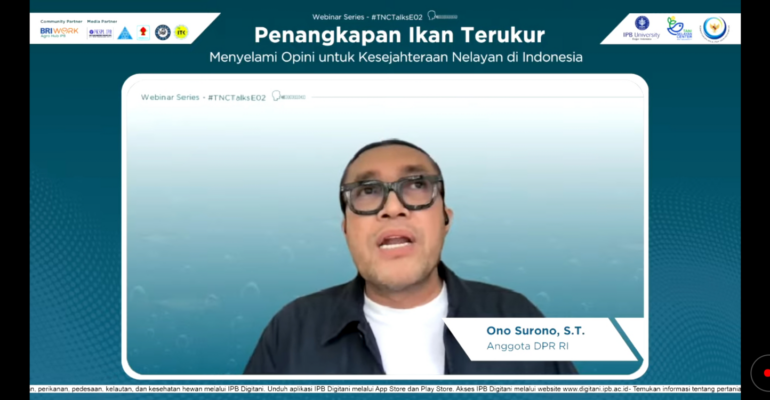Farmers and Fishermen Centre IPB University Invites Three Figures, Peels the Measured Fishing Policy

Indonesia is rich in abundant fish resources. However, the fact is that these fishing resources are decreasing every year. Uncontrolled fishing makes some fisheries management areas (WPP) threatened with overfishing and unsustainable. This condition encourages the birth of a measured fishing policy (PIT).
This encourages Farmers and Fishermen Centre (TNC) of IPB University to become facilitators in describing the views and expectations of fishermen regarding the implementation of PIT policies through the webinar series #TNCTalks Episode 02 which was held online recently.
Wawi Suroso, Chief of the Working Group (Kapokja) for Licensing Procedures, Ministry of Marine Affairs and Fisheries (KKP) said that the preparation of the PIT policy was based on input from stakeholders such as, PIT relaxation in the transition period, including fishing quotas and certificates as well as non-tax state revenues (PNBP) quotas.
“However, because of Indonesia’s rich and unique marine and fishery conditions, it requires synergy and collaboration to realise the success of marine and fisheries development so that sustainability points can be realised,” he said.
Ono Surono ST, Member of the People’s Representative Council of the Republic Indonesia (DPR) criticised that the purpose of the PIT policy must be clearer, for the increase of PNBP which is still below one trillion rupiah or for the welfare of fishermen.
According to Ono, fishermen who are still dominated by small fishermen should not only be used as legal objects because they have a high risk of administrative errors.
“The fisheries policies and programs that are prepared should be adjusted to the character and habits of the fishing community so that fishermen do not feel burdened with convoluted rules,” he said.
Prof Tri Wiji Nurani, as Professor of the Faculty of Fisheries and Marine Affairs at IPB University, conveyed the perspective of sustainable fisheries development regarding the measured fishing policy that will be implemented in 2024 but must be relaxed for consolidation until 2025 in Indonesia.
“Sustainable measured fish fishing is our shared responsibility and interest, including all stakeholders in the form of planning, implementation to careful monitoring and evaluation,” he said.
“This webinar is very important, especially related to the levies of fishery products in the PIT policy, the provisions for the regulation of fishing quotas and their calculations, as well as the business processes, because all layers of fishermen will be affected,” he concluded.
The PIT policy was responded to by Zulfitrah, a fisherman from Aceh Province, Danu Waluyo Paspudoyo fisherman from Jakarta, and La Tohia fisherman from Maluku Province. Fishermen demand clarity of purpose and consistency of implementation because fisheries are still dominated by small fishermen and the welfare of the Subordinates (ABK) which is still lacking.
“Right now, most fishermen also receive income from the profit sharing system. PIT policy must at least be able to consider this,” said Zulfitrah. (MW) (IAAS/IAN)



